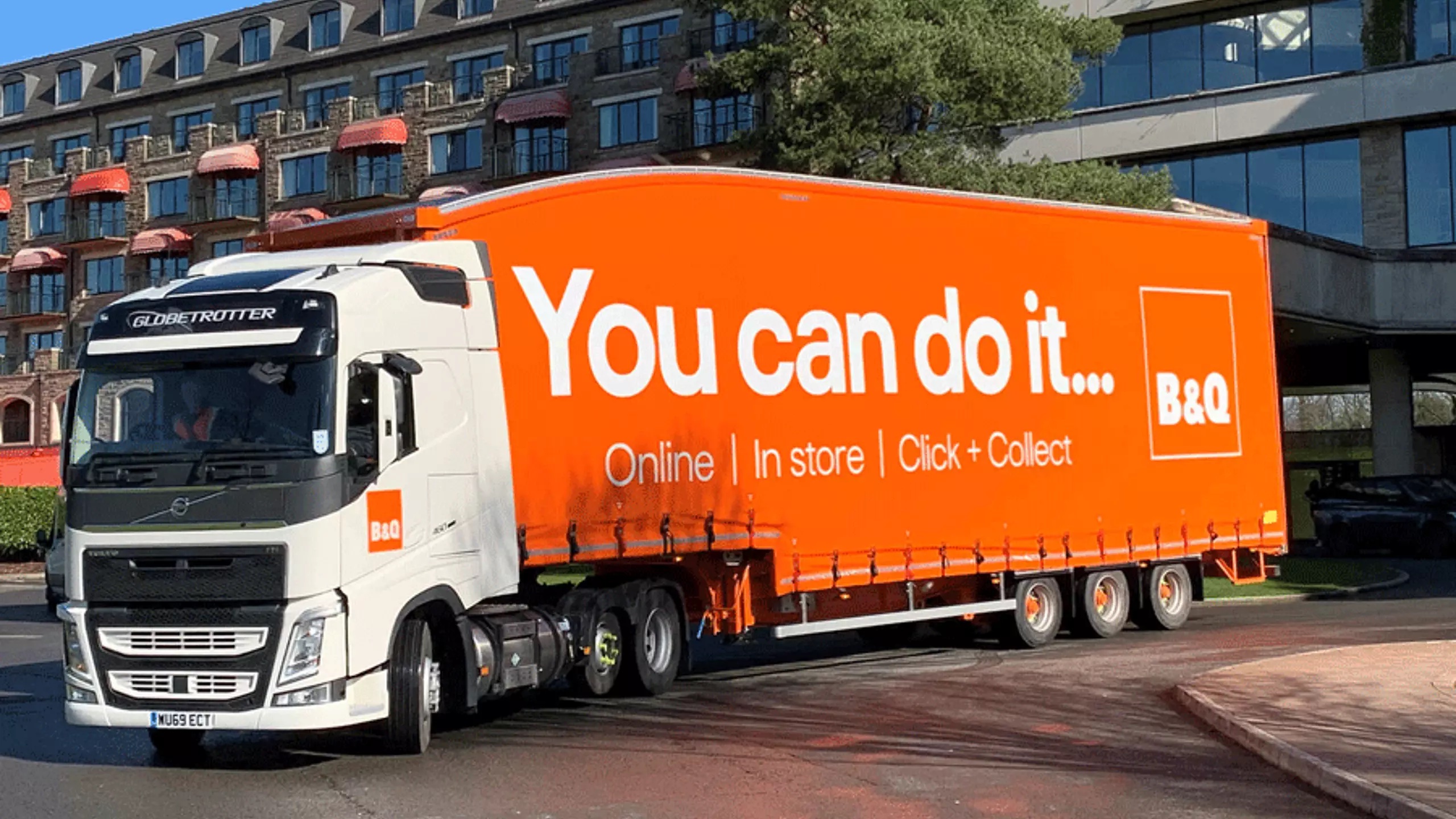
Home improvement retailer B&Q has adopted alternative low-carbon fuels across its entire logistics fleet as part of its efforts to cut transport emissions in line with a 2040 net-zero target.
B&Q announced this week that all its remaining vehicles and 80 refrigerated trailers have been switched to Hydrotreated Vegetable Oil (HVO), which it claims can reduce emissions by up to 90% compared with diesel.
Since 2019, B&Q has also introduced 105 Liquified Natural Gas (LNG) vehicles, forming what it claims to be the second-largest LNG fleet in the UK. This transition has reduced emissions by around 16,000 tonnes.
Emissions are calculated using activity-based carbon accounting and UK Government conversion factors, with results audited annually.
The changes are part of a joint decarbonisation programme with GXO Logistics, which manages B&Q’s distribution network.
According to the companies, the initiative cut projected emissions by 40% in 2024, two years after the launch of a dedicated “sustainability glidepath,” which is B&Q’s comprehensive roadmap to decarbonise the logistics fleet.
B&Q’s director of logistics Darren Hall said: “Decarbonisation of our fleet and use of up-to-date and available technologies is a vital step in our transition to alternative fuels, allowing us to give customers more choice in sustainable delivery options and reducing our impact on the environment.
“It’s great to work alongside GXO to help us to drive our ambitions forward and reach our 2040 net-zero goals.”
Electrification is also underway. B&Q currently operates five electric vans and two electric heavy goods vehicles (HGVs), with two more HGVs due in 2025 and 55 additional electric vehicles planned within five years.
The company’s present electric fleet is expected to save 250 tonnes of CO2 equivalent each year.
Other measures include route optimisation software, driver performance monitoring and scheduling changes that have reduced the fleet size by nearly 10% since 2021.
Backhaul improvements cut 104 tonnes of Scope 3 (indirect) emissions in 2024. In early 2025, 35 LNG-powered Volvo FH Aero tractor units were added, designed to improve fuel efficiency by 3% and save around 100 tonnes of CO2 annually.
B&Q is also piloting a transport optimisation system enabled by artificial intelligence (AI), which early trials suggest could remove 240,000 kilometres of travel and avoid 150 tonnes of CO2 each year once fully deployed.
GXO UK & Ireland’s managing director Gavin Williams said: “Achieving zero emissions in logistics transport is a significant challenge – one that can only be met through a combination of strategies.
“B&Q’s approach stands out as a model for the industry, proving that innovation, collaboration and sustainability can go hand in hand to create a more efficient and environmentally conscious fleet.”
More about B&Q news here: https://www.diy.com/corporate/about/media-centre
https://couriernews.co.uk/blog/bq-completes-switch-to-low-carbon-fuels-across-logistics-fleet/